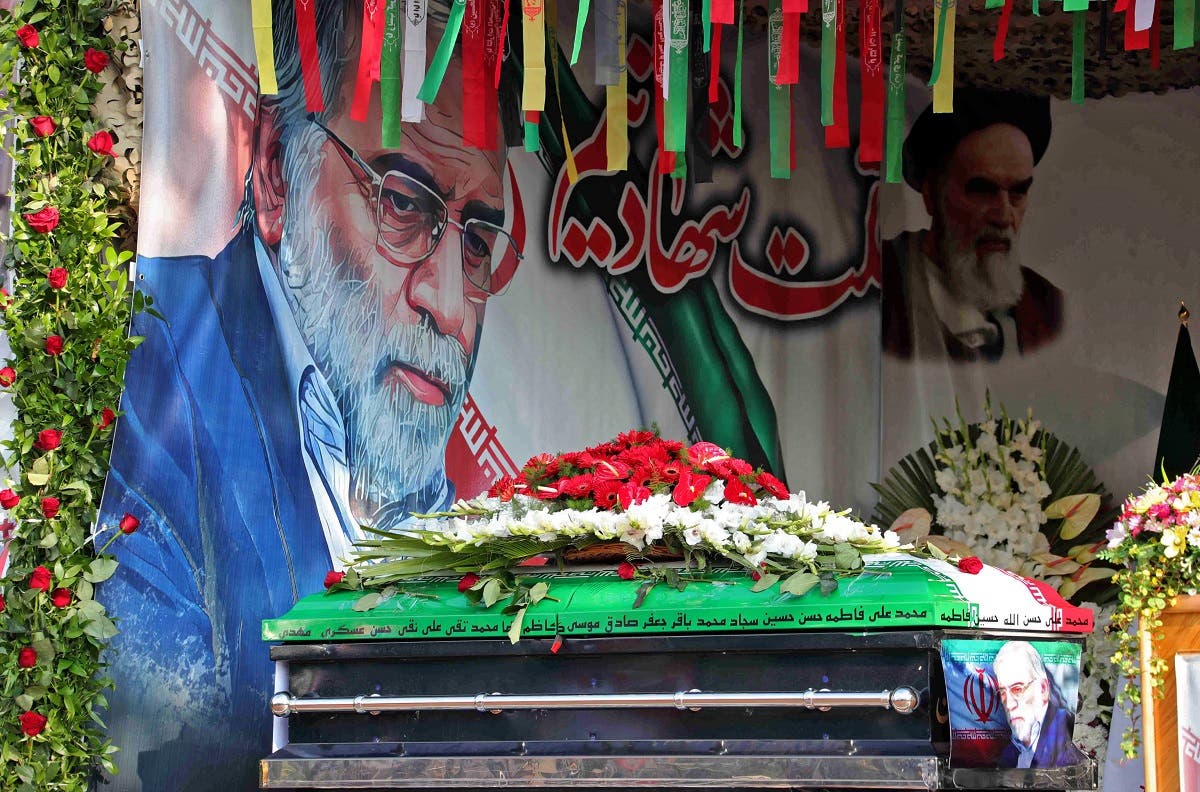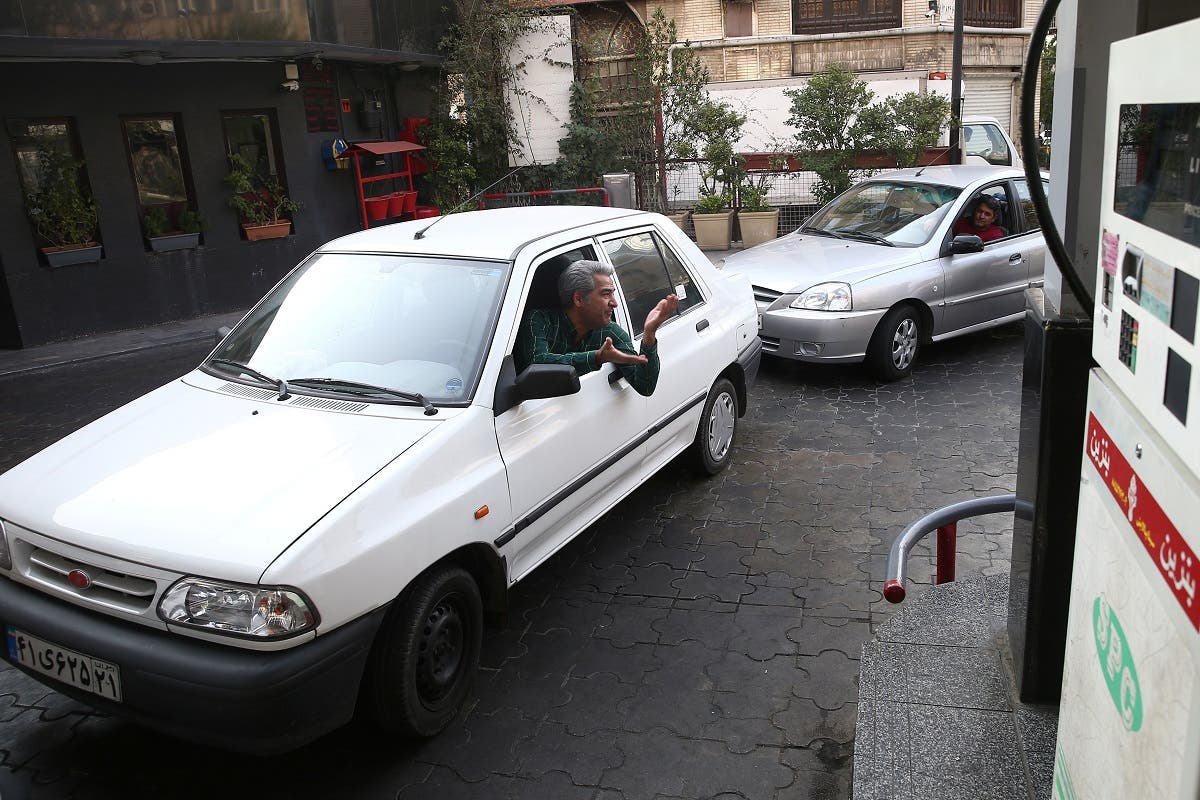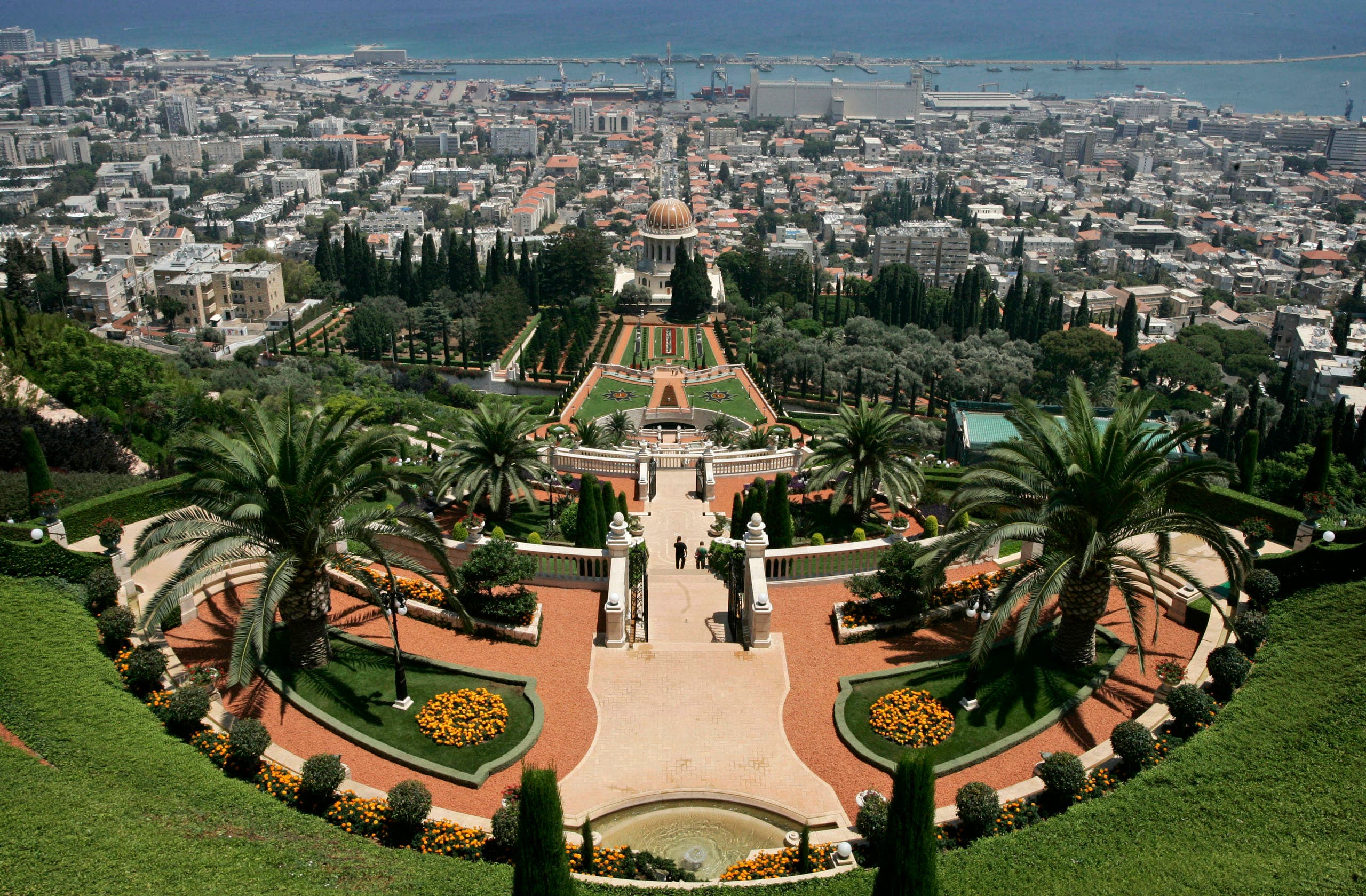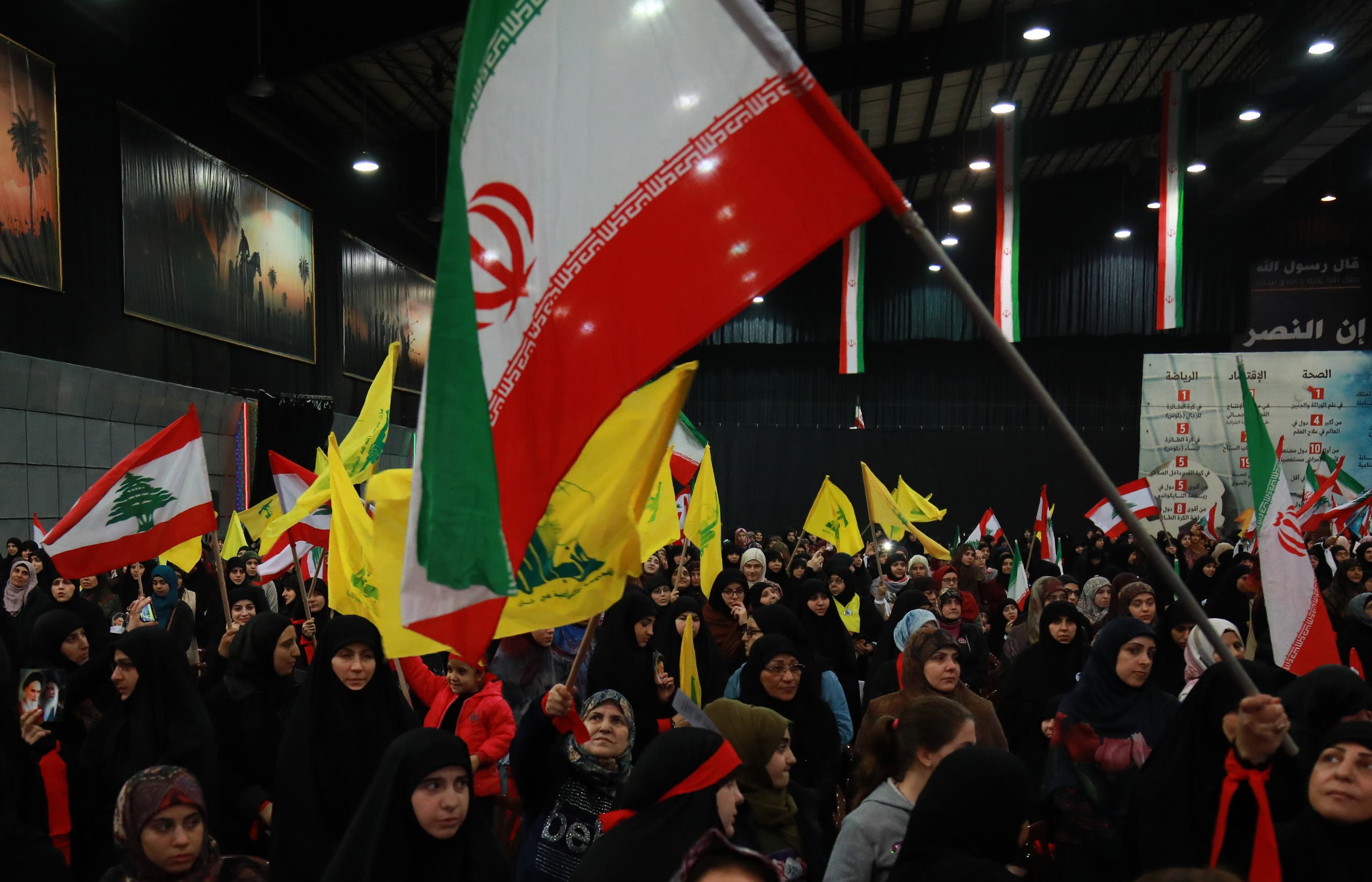Al-Arabia – The US State Department backed Israel’s right to self-defense on Tuesday following Iranian threats to attack Israel’s port city of Haifa.
On Sunday, Iranian newspaper Kayhan – run by a representative of Iranian Supreme Leader Ali Khamenei – suggested Iran attack Haifa to destroy facilities and cause “heavy human casualties” in retaliation for the killing of prominent Iranian nuclear scientist Mohsen Fakhrizadeh.
“We condemn any threats against Israel and reiterate our support for Israel’s right to self-defense,” a State Department spokesperson told Al Arabiya English.
The killing of Fakhrizadeh
Fakhrizadeh was killed in a military-style ambush on Friday near Tehran, and died due to injuries sustained during a shoot-out between his bodyguards and “armed terrorists,” according to Iran’s defense ministry.

A handout picture provided by Iran’s Defense Ministry on November 30, 2020 shows the coffin of slain top nuclear scientist Mohsen Fakhrizadeh in front of a large display depicting Fakhrizadeh next to Iran’s supreme leader Ali Khamenei during the funeral ceremony in Tehran. (AFP)
Fakhrizadeh, who has been called the “father of Iran’s nuclear bomb,” founded the Islamic Republic’s military nuclear program in the early 2000s.
Iran’s Islamic Revolutionary Guard Corps (IRGC) chief Hossein Salami has alleged Israel “designed and directed” Fakhrizadeh’s killing and Iran’s Foreign Minister Mohammad Javad Zarif claimed Friday there were “serious indications of Israeli role.”
Iranian media reported on Monday that the weapon used in the killing was made in Israel.
Iran has previously accused both Israel and the US of orchestrating the murders of Iranian nuclear scientists Majid Shahriari and Mostafa Ahmadi-Roshan, both killed in car bombs in Tehran in 2010 and 2012, respectively.

Cars queue at a petrol statio in Tehran, Iran on November 15, 2019. (File photo: Reuters)
Iran’s threats against Israel
The killing of Fakhrizadeh marks the second assassination of a top Iranian figure this year. In January, the US ordered a drone strike that killed top Iranian military commander Qassem Soleimani.
A former IRGC chief said at the time that Iran’s “revenge against America” would include the targeting of Haifa and Israeli military centers.
While Haifa may be the third largest city in Israel, in the eyes of the Iranian regime it is the primary target due to its economic significance and proximity to Lebanon, which is home to Iranian proxy Hezbollah, experts say.

Visitors walk in the gardens in the Baha’i temple in the northern Israeli city of Haifa on July 14, 2008. (AP)
Tehran believes Haifa is the “most critical business center of Israel,” according to Saeed Ghasseminejad, a senior Iran adviser at the Washington think tank Foundation for Defense of Democracies (FDD).
Read more: Iran’s Quds Force chief tells Lebanon’s Hezbollah to stand down on Israel: Report
Haifa, located in the north of Israel, is closer to Lebanon and therefore viewed as more vulnerable by Iran and Hezbollah than major central or southern Israeli cities, according to former Israeli Defense Forces Colonel Miri Eisin.
It is Haifa’s proximity to Lebanon that makes it more practical for Iran or Hezbollah to carry out a missile attack against it, according to Ghasseminejad.

Supporters of Lebanese Hezbollah wave the movement’s yellow flag along with Iran’s flag during celebrations marking the 40th anniversary of the Iranian revolution in the capital Beirut’s southern suburbs on February 6, 2019.
“We know as the distance from targets increases, Iran-manufactured missiles become less reliable,” Ghasseminejad said in an interview with Al Arabiya English.
 Shabtabnews In this dark night, I have lost my way – Arise from a corner, oh you the star of guidance.
Shabtabnews In this dark night, I have lost my way – Arise from a corner, oh you the star of guidance.


